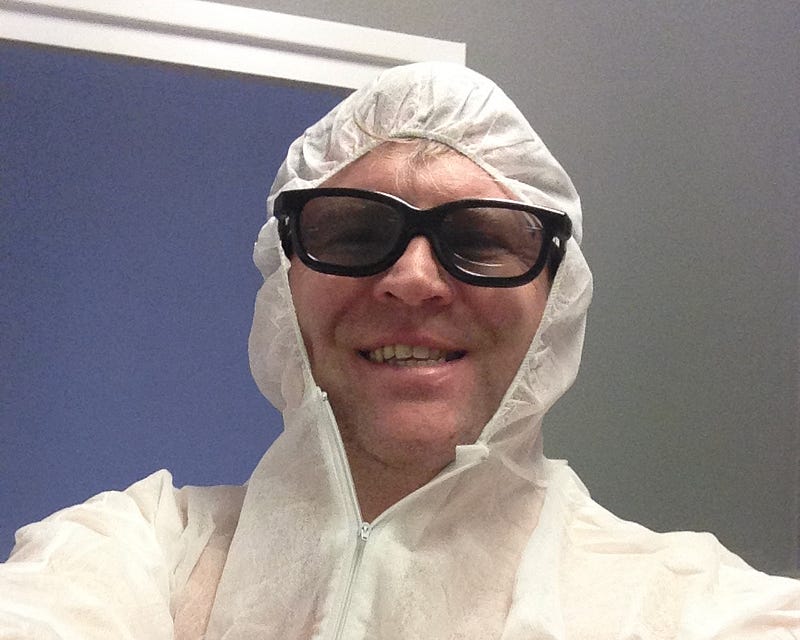Revitalizing Trust in Science: The Role of Communication
Written on
Chapter 1: Understanding the Erosion of Trust
In today's world, scientific conclusions are often perceived as mere opinions rather than established facts. This decline in trust stems from various factors, including the preeminence of economic perspectives, the individualization of understanding, and the widespread access to information. Nevertheless, effective Science Communication can help restore confidence in scientific endeavors.
The Decline of Institutional Trust
Globally, trust in institutions—be it government, business, or media—has been on a downward trajectory. Simultaneously, definitions of value and prosperity have become increasingly tied to economic measures. This reductionist view of happiness has been compounded by governmental reliance on business models for insights into societal management. Ironically, businesses themselves are still grappling with how to navigate human affairs.
As Thomas Piketty noted in 2014, the perception that wealth resides in corporations rather than governments has led to an imbalance of power. Consequently, governments began to prioritize economic growth over the welfare of their citizens, culminating in a wave of privatizations during the 1980s. The focus shifted to economic contributions rather than overall societal well-being, often referred to as "trickle-down economics," a theory that has faced renewed criticism in recent years.
Unfortunately, scientific institutions mirrored these governmental missteps, striving to adopt business-like efficiencies while compromising their intellectual autonomy. This shift resulted in science being viewed as a mere extension of governmental or business interests, stripping it of its unique perspective and authority.
The Scientific Publication Conundrum

Despite being publicly funded, scientific research is often published in costly, for-profit journals, making access to findings limited. Given modern technology, distributing scientific results in a non-profit manner is now feasible. However, the legacy of traditional publishing continues to hinder progress.
Chapter 2: Broken Promises of Science
The erosion of trust in science can be attributed to its economic redefinition and the attempts of scientific institutions to align with business practices. These efforts led to a loss of distinctiveness, reducing science to "just another opinion."
Furthermore, science has failed to uphold two critical promises: integrity and progress. Instances of academic fraud, particularly in the social sciences, have tarnished the reputation of the scientific community. While increased transparency has shed light on these issues, they nonetheless undermine public confidence in research.
On a broader scale, the promise of continuous advancement has faltered. Despite significant achievements throughout history—from the Scientific Revolution to the Information Age—human nature's darker aspects remain unresolved. Scientific progress has not necessarily translated into societal betterment, leading to a more cautious approach to scientific claims.
The Shift from Science to Wishful Thinking
Ironically, the decline of trust in science has led to a resurgence of religious-like thinking, characterized by a preference for certainty over uncertainty. In contrast to the empirical approach of science, many individuals now gravitate towards belief systems that provide clear moral and existential frameworks.
The scientific method, which emphasizes skepticism and the pursuit of evidence, is often misunderstood. The rigorous process of hypothesis testing and theory refinement is not widely recognized, leading to a skewed perception of what constitutes valid knowledge.
The Internet's Role in Information Confusion
The explosion of information access, particularly through the Internet, has complicated the landscape of knowledge dissemination. While it democratizes access, it also muddles the distinction between credible information and misinformation. As users navigate this complex environment, they often mistake the abundance of data for genuine understanding.
Google and emerging AI tools like ChatGPT have become the latest gatekeepers of information, yet users seldom scrutinize these sources. This lack of critical engagement has led to a society that increasingly undervalues expert knowledge, often equating personal opinion with scientific authority.
Restoring Trust Through Effective Science Communication
As we move forward, rebuilding trust in science requires proactive efforts in communication. Here are seven actionable tips for science communicators, particularly scientists themselves:
- Engage Actively: Utilize every opportunity to communicate with the public. Listening to their concerns and inspirations is just as crucial as sharing information.
- Plan Strategically: Communication should be intentional. Missteps can be difficult to rectify, so ensure clarity when interacting with media and the public.
- Master Storytelling: Academic writing often fails to resonate with general audiences. Cultivating storytelling and presentation skills can enhance engagement.
- Connect Emotionally: Science communicators must acknowledge their emotional side. Establishing an emotional connection can facilitate better understanding and retention.
- Combat Misinformation: Actively challenge false claims and misinformation wherever they arise, whether on social media or other platforms.
- Uphold Integrity: Address unethical practices within the scientific community and maintain high standards of integrity.
- Embrace Open Access: Support initiatives that promote free access to scientific knowledge, enhancing public engagement and trust.
In conclusion, science has contributed immensely to humanity, and it is essential to take pride in this achievement. The journey to rebuild trust in science is ongoing, but with deliberate and thoughtful communication, we can pave the way for a more informed society.
Chapter 3: Recommended Videos
To further explore the importance of effective communication in science, consider these insightful videos:
"Confident Humility: How to Balance A Strong Voice With Vulnerable Leadership" (Dr. Monique Sendze) discusses the balance needed in leadership and communication.
"Science communications matters and how to do it better" (Jo Filshie Browning | TEDxBasel) explores the significance of effective science communication and strategies for improvement.